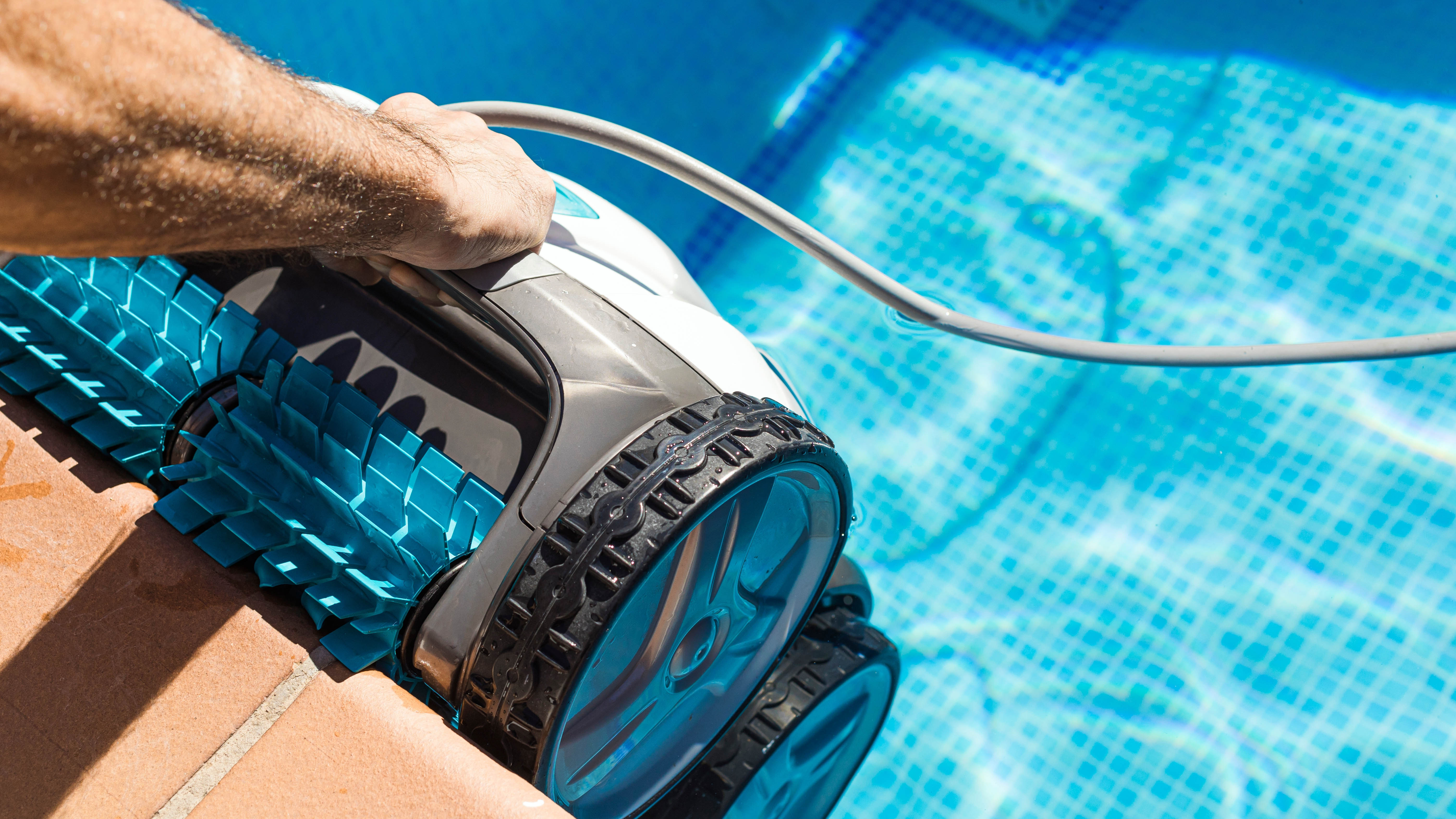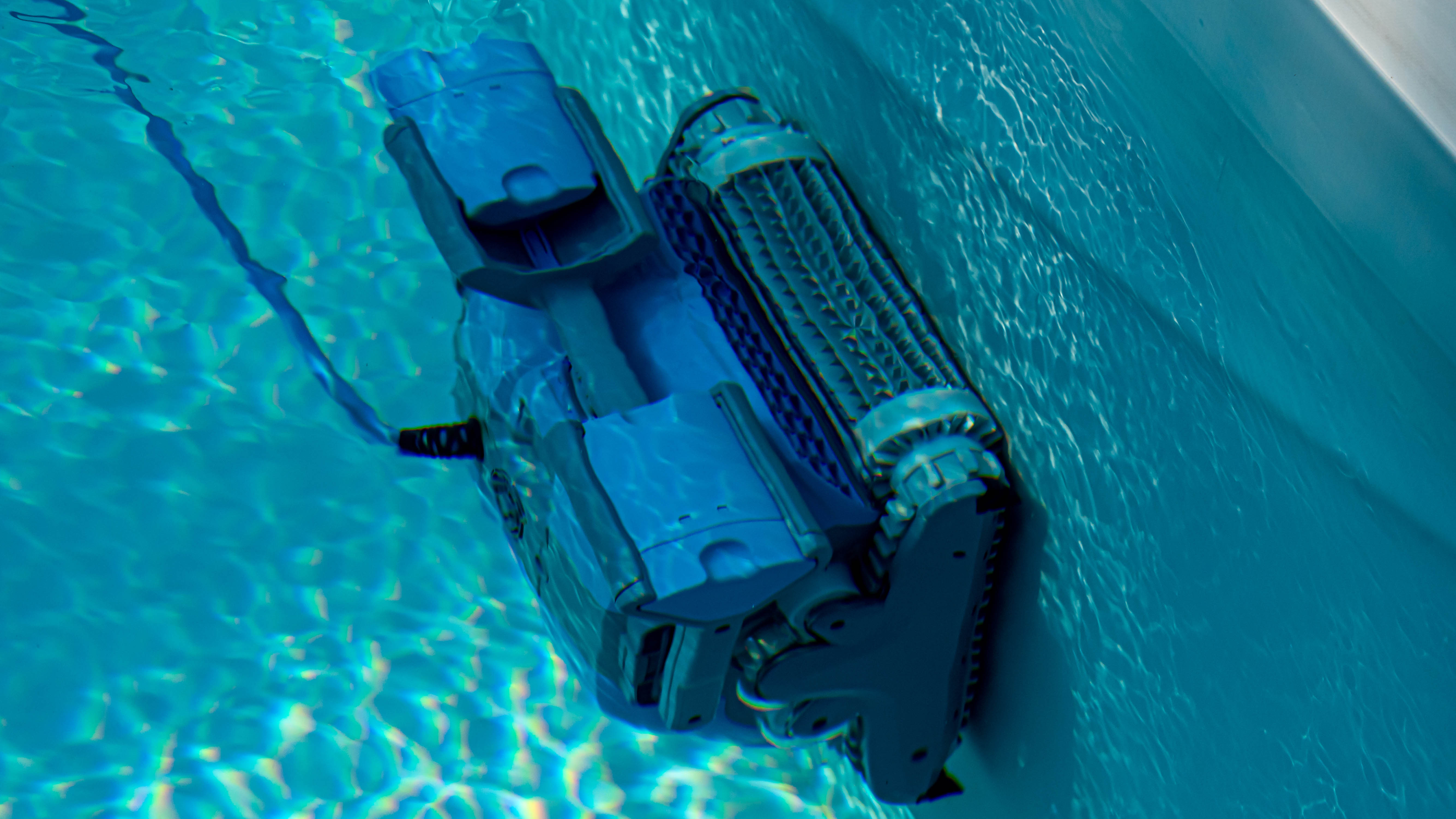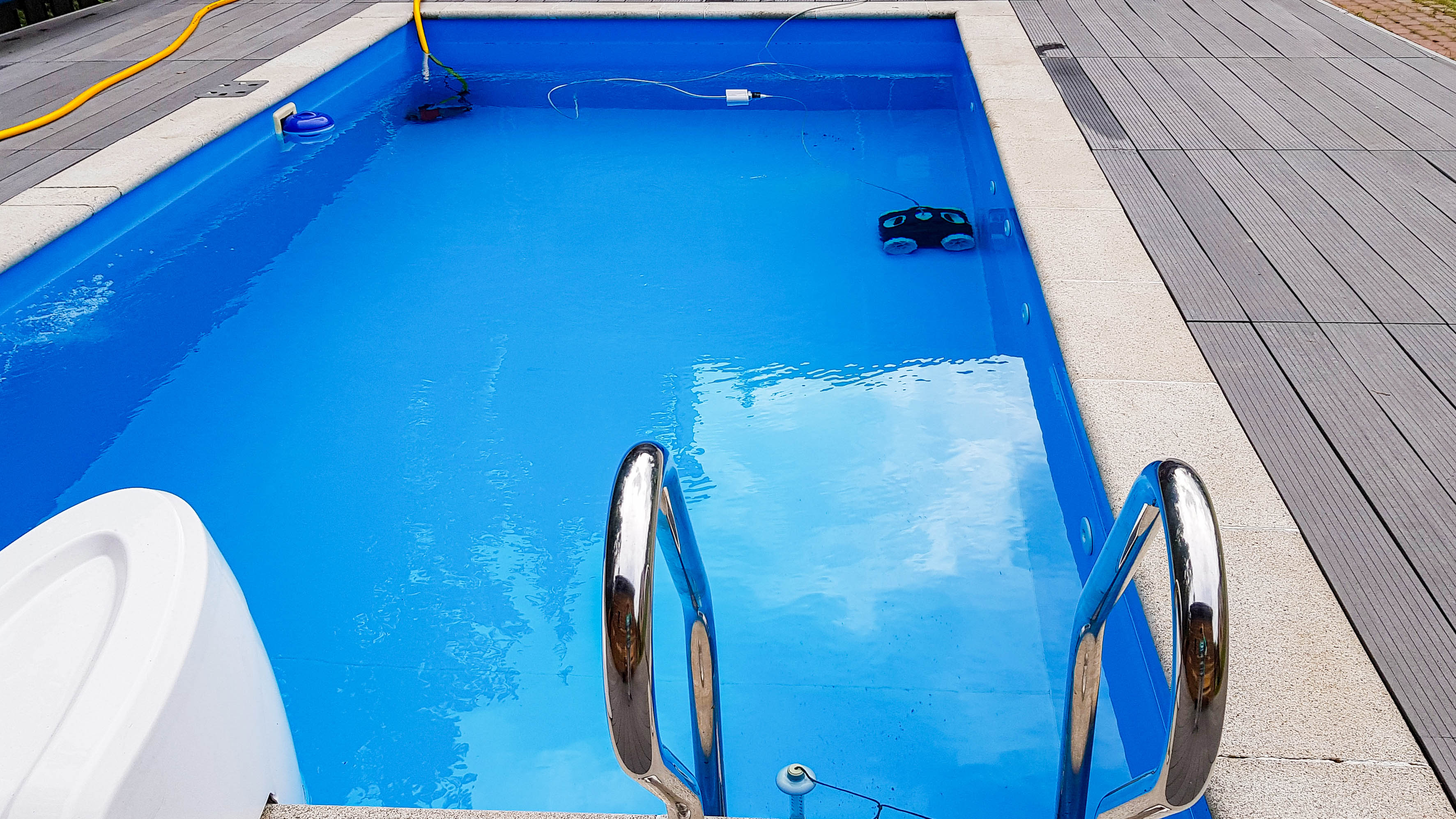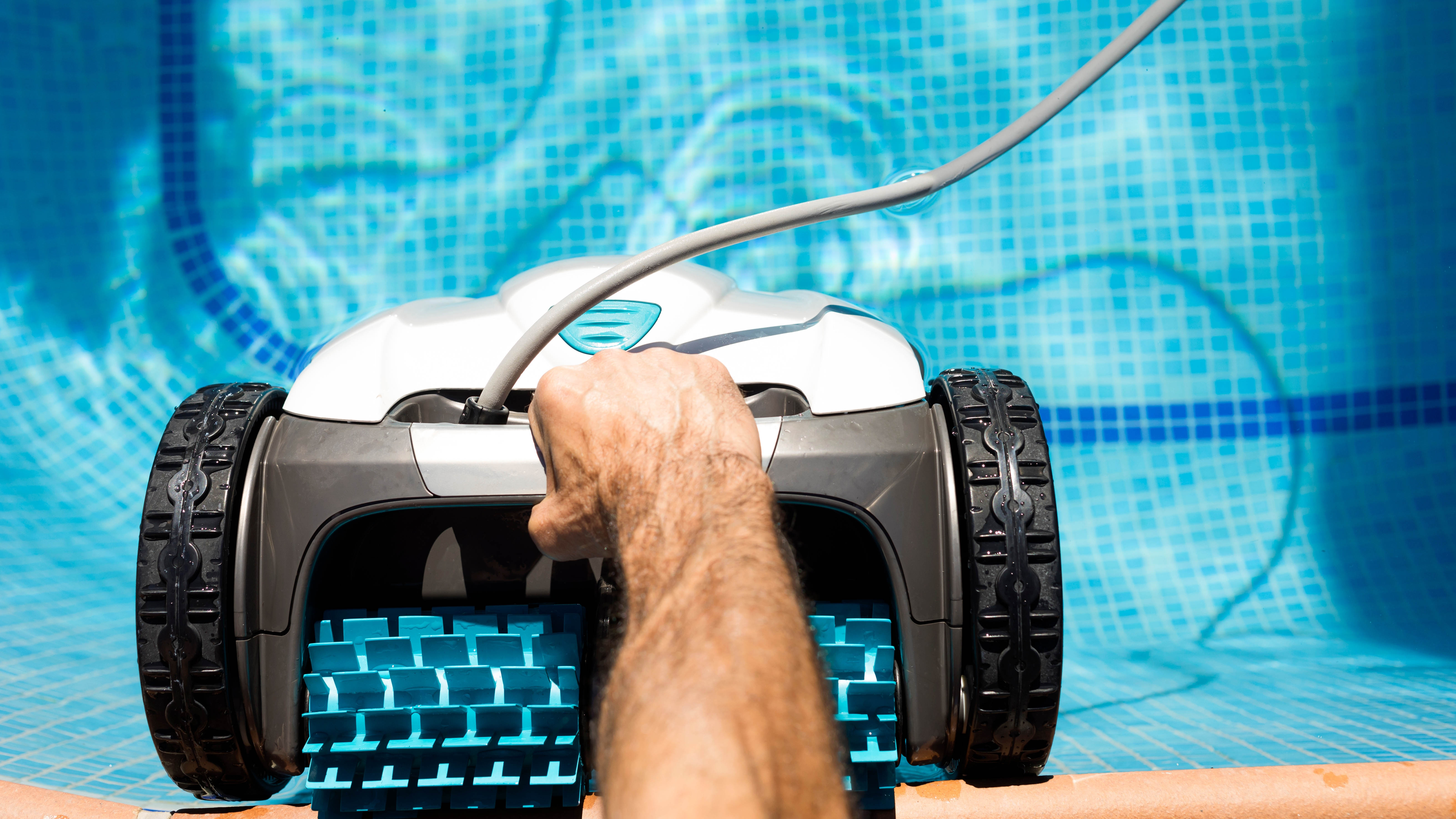Robot pool cleaners — 5 reasons to buy and skip
We’ve found the pros and cons of buying a robot pool cleaner

A swimming pool can provide hours of fun and fitness – but owners can also spend hours cleaning it. A robot pool cleaner is an alternative to laborious cleanings – and also to paying the professionals to come out and clean your pool on a regular basis. However, does a robot pool cleaner really have the ability to effectively clean your pool? Or is it too good to be true?
Generally, we know that robot vacuums can effortlessly clean everything from cereal and kitty litter to pet hair from both hardwoods and carpets. But do robot pool cleaners produce the same type of effects underwater while also being relatively hands-off?
To help you decide, we look into the positives and negatives to robot pool cleaners, so you can work out whether a robot will be right for your home.
5 reasons to buy a robot pool cleaner
1. Quick and thorough
If you’re accustomed to spending hours in the hot sun cleaning your pool, a robot pool cleaner can make your life much easier. “The average amount of time it takes for robotic cleaners to clean the average pool is about 1-2 hours, so you can get back to swimming in no time,” says Jimmie Meece, brand president of America's Swimming Pool Company.
"To ensure it gets the job done efficiently, robotic pool cleaners are designed to map out the size of the pool (like robot vacuums do in your home) and are built with their own filtration components to ensure each corner is completely covered and filtered to perfection.”

2. Plenty of options
Get instant access to breaking news, the hottest reviews, great deals and helpful tips.
There are robot pool cleaners for in-ground pools and above-ground pools, and you can choose from models that have cord lengths ranging from 15 to 60 feet — as well as cordless, battery-operated models.
Some robot pool cleaners are relatively lightweight (11 pounds) and others are over 40 pounds. Depending on your pool type, pool size, and other factors, there are plenty of robot pool cleaners to choose from.
3. Easy to use and maintain
Robot pool cleaners also do a better job of figuring out how to clean your pool than you probably would just by looking at it. “To help users clean their pools with ease, robotic pool cleaners are built with specific software that determines the best way to get the job done,” says Meece.
“And since they’re able to map out every inch of your pool, they can easily identify each wall and tile line, as well as help you turn your pool pump off when running the vacuum,” he explains.
Also, some models even come with remote control settings that make them even easier to use.
In fact, it’s even easy to set them up. “You simply need to plug it in and drop it in the water,” explains Cristina Miguelez at Fixr. “They do a pretty thorough job since they scrub the pool’s surfaces of any dirt, debris, or algae.” And on some models, you can set a weekly timer, or remotely steer it.
Maintenance is also relatively easy, and typically includes a few minutes cleaning the machine.

4. Energy efficient
And if you’re trying to save on energy expenditures, robot vacuums can help in that area as well. “Rather than needing to be attached to a pump or circulation system, robotic pool cleaners run off your household electricity by simply plugging into a power outlet,” Meece explains. In addition, he says they use their own filter bag. “With these features and fast speeds, robotic cleaners tend to help users save on energy expenses overall.“
“They relieve some of the work from your pump since they filter and circulate the water as they go.” agrees Miguelez. In fact, she says you can even switch off your pump while the robot is cleaning to save on energy consumption.”
5. Cost
We found robot pool cleaners ranging in price from $300 to $1,700. “A pool maintenance service costs around $500 for a monthly service during the summer months, which includes cleaning and chemical treatments, so you’ll need to weigh up these costs with the price of the robot, its filters, and any repairs it might require over time,” Miguelez says.
For example, Meece says that although robotic pool cleaners run on the pricier side, they are the easiest pool cleaner to use and can prolong the life of your pool’s filter.
“When compared to alternatives like suction and pressure cleaners, users end up spending more time and money on overall energy costs, cleaning filter systems and skimming, so in the long run, robotic cleaners may be a better option for some.”
4 reasons to skip a robot pool cleaner
1. Higher upfront costs
Although the overall costs of a robot pool cleaner can be cheaper, Meece says you’ll pay more when starting out, so you’ll have to consider this as well.
For example, if you choose a top-of-the-line model, you may be paying $1,300 to $2,000 – and you likely won’t recoup that in the first year of ownership (compared to paying someone to clean your pool) — unless you live in a region suitable for using your pool year-round.

2. Regular routine maintenance
Even though the robot pool cleaner makes taking care of your pool much easier, this doesn’t mean you’ll never have to do anything. Meece says you’ll need to clean the machine’s filter and empty debris after each cleaning cycle. These are simple tasks, but they are required to keep the machine running smoothly.
3. They can be heavy
Setting up a robot pool cleaner can be easy, but Miguelez says it can be heavy to move it out of the water. In most instances, you’ll need to pull on the cable to bring it to the edge of the pool, and then grasp the handle to pull it out of the water.
Robot pool cleaners can weigh anywhere from 10 to 20 pounds or more, in addition to the water inside. Fortunately, some of the heavier models have a wheeled caddy to help transport it.

4. Complex repairs
Robot pool cleaners also tend to have complex repairs if needed. “Because robotic pool cleaners are more technologically advanced than the other kinds, when they’re not functioning properly, it can take more time to repair,” says Meece.
Certainly, you’re not expecting a new robot pool cleaner to break down anytime soon, but when it does, be prepared for this disruption.
Verdict: Should you get a robot pool cleaner?
If you hate the idea of manually cleaning your pool, a robot pool cleaner can be a lifesaver. Instead of spending hours laboring in the blazing sun, you can stay indoors and watch it thoroughly and efficiently clean your pool. And whether you have an in-ground or above-ground pool, there’s a model that fits your needs. Robot pool cleaners have power cords that range from 15 feet for small pools to 60 feet for large ones. And this is in addition to cordless, battery-operated models. Some robot pool cleaners also come with other features, like remote control settings and weekly timers.
In terms of cost, you can find a robot pool cleaner for just $300 — although some models are over $1,700. If you’re accustomed to purchasing chemical treatments and other cleaning accessories, a robot pool cleaner can be a more cost-effective option that’s also more convenient. Those who pay to have the pool cleaned may also find that during the course of one summer, they’ve recouped the cost.
However, keep in mind that a robot pool cleaner needs to be cleaned after it cleans your pool. Maintenance isn’t difficult, but you will need to clean the filter and empty debris. And it can be heavy to pull out of the water. In addition, if the robot pool cleaner ever breaks down, you probably won’t be able to fix it yourself.
But overall, a robot pool cleaner can make your life much easier. Instead of spending hours cleaning your pool, you can spend that time enjoying it.
More from Tom's Guide
- Also, check out robot lawn mowers — 5 reasons to buy and 5 reasons to skip
- You might need one of these 7 plants to create more privacy in your backyard
- Plus, here are 7 clever ways to make your backyard look bigger

Terri is a freelance writer living in Birmingham, AL. She is an experienced mattress and bedding product reviewer, and has tested hundreds of home and tech products, with bylines at Architectural Digest, Popular Science, CNN Underscored, NBC News, The Daily Beast, USA Today, Homes & Gardens, Bob Vila, and Tom's Guide.
 Club Benefits
Club Benefits





